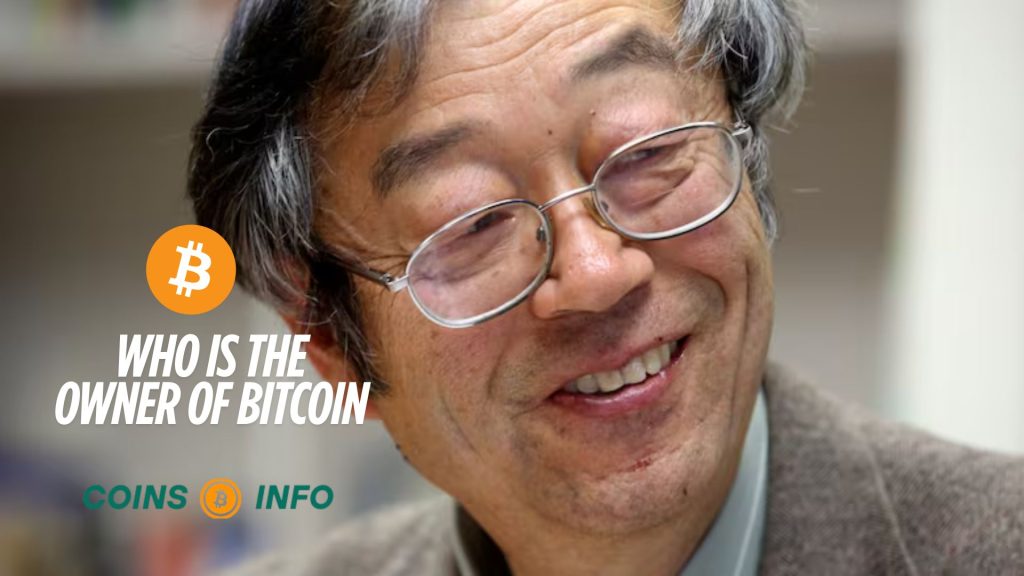Owner of Bitcoin; Since its launch in 2009, Bitcoin, the world’s first and most well-known cryptocurrency, has captured the interest of investors, engineers, and financial institutions. The enigmatic beginnings of Bitcoin, particularly the identity of its creator and the ownership of the currency itself, are among its most fascinating features. Who is the owner of Bitcoin?
The answer is both straightforward and intricate: Bitcoin is not owned by a single individual or organization. Rather, a global user community owns and maintains this decentralized digital currency. However, there are multiple layers of interest surrounding the subject due to the history of Bitcoin, its creator, and the early ownership of coins mined during its infancy.
The Mysterious Creator: Satoshi Nakamoto.
A person or group of people using the pseudonym Satoshi Nakamoto created Bitcoin. A whitepaper titled “Bitcoin: A Peer-to-Peer Electronic Cash System” was released by Nakamoto in October 2008. It presented a concept for a decentralized digital currency that could operate independently of a centralized entity, such as a bank or government. In January 2009, Nakamoto scooped the “genesis block,” the first block of Bitcoin.
The real identity of Satoshi Nakamoto is still a mystery. No one has been able to show they are the actual Nakamoto despite a lot of claims and inquiries. This anonymity highlights decentralization, one of Bitcoin’s basic tenets, and contributes to its mystique. In 2010, Nakamoto stopped sharing with the public, putting the initiative in the hands of the local community.
Satoshi’s Bitcoin Holdings.
Despite not having direct management over Bitcoin, Nakamoto is thought to own a sizable portion of it. Researchers estimate that Satoshi mined about one million bitcoins in the early days of the network based on blockchain analysis. This stockpile would have been worth tens of billions of dollars at the height of Bitcoin’s value.
Since none of these currencies have ever been transferred or spent, it’s interesting to note that many people think Satoshi might never come back or might even be dead. These coins’ unaltered state supports Bitcoin’s decentralized philosophy; in contrast to conventional financial institutions, no central entity controls or makes money.
Bitcoin’s Decentralized Ownership.
Bitcoin is owned by millions of people and organizations worldwide, in addition to Satoshi. The distributed ledger that powers Bitcoin is called a blockchain, and it is kept up to date by a network of computers known as nodes. In order to maintain transparency and stop double-spending, these nodes verify and log transactions.
By setting up a digital wallet and earning Bitcoin through mining, buying, or receiving payments, anyone can become a Bitcoin owner. One of the most important features of Bitcoin is its accessibility. Bitcoin is controlled by code and consensus, as opposed to fiat currencies, which are overseen by governments and central banks.
Largest Bitcoin Holders.
There are significant holders of Bitcoin, even though no one “owns” it in the conventional sense. These consist of institutional investors, cryptocurrency exchanges, and early adopters. The following are a few of the biggest recognized Bitcoin holders:
- Cryptocurrency exchanges like Binance and Coinbase hold large amounts of Bitcoin on behalf of their users.
- Institutional investors such as MicroStrategy and Tesla have purchased large amounts of Bitcoin as part of their corporate treasury strategies.
- Bitcoin whales, or individuals who own thousands of BTC, often from early mining or investments.
Despite these large holdings, no single entity has enough control to dictate Bitcoin’s direction or undermine its decentralized structure.
The Role of the Bitcoin Community.
A community of open-source contributors, architects, miners, and consumers manages and advances Bitcoin. These stakeholders must agree to accept proposed modifications to the Bitcoin protocol. This governance mechanism guarantees that Bitcoin cannot be unilaterally controlled by one individual or group.
Although the Bitcoin Core development team, which is composed of international volunteers, is crucial to the software’s upkeep, they have no authority over Bitcoin itself. For any modifications they suggest to be implemented, the network as a whole must accept them.
Conclusion.
Who is the owner of Bitcoin? In the philosophical and technical sense, everyone does, and nobody does. Bitcoin was created with a distributed network and open-source technology in order to operate without central ownership. Even if Satoshi Nakamoto, the network’s enigmatic founder, may own a sizable portion of Bitcoin, their absence and silence have only served to reinforce the decentralized nature of the system.
Users of Bitcoin—individuals, organizations, miners, and developers who engage with the system—own the cryptocurrency. What makes Bitcoin special and robust is its shared responsibility and control architecture. Bitcoin will always be genuinely owned by the many, not the few, as long as people uphold its ideals and keep using its ecosystem.
